“Valentines’ Day was not so long ago. I remember it in vivid details. It was the day Tunisian police denied us our right to free movement. Where is the love in that? What kind of celebration are people talking about?”
24-year-old Nasser pauses for a second before he continues: “The security officer pulled my hair and dragged me from home all the way to the police car. All along, he was yelling ‘Is this how men dress? Is this a man’s haircut?”
‘You have no right to treat me like that, I said. You are breaking the law.’ He let out a sarcastic laugh before he exploded in my face again: “Since when do perverts have rights? We have been way too patient with you! We should have burnt you long ago”.
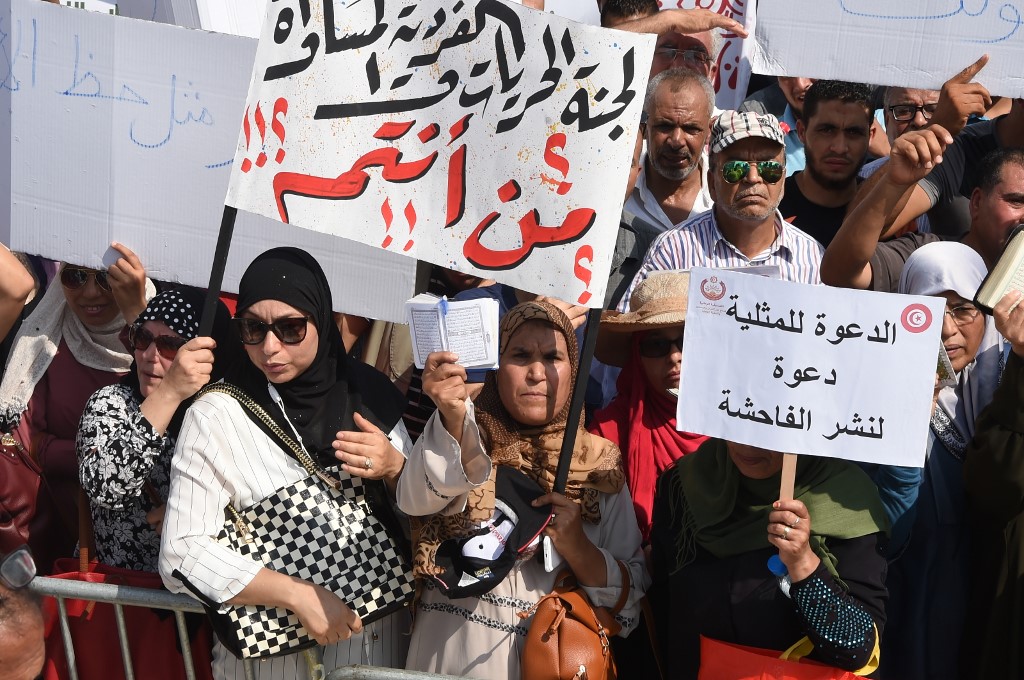
The following is a collection of testimonies from gay Tunisians who were physically and psychologically tortured, denied basic freedoms and put through unfair trials, as a punishment for their sexual preference. Although the new constitution, drafted after the revolution, defends personal rights and liberties, it remains largely unimplemented, and does not deter the police from using violence against gay citizens.
They Need only Guess you are Gay, and your Freedom is Gone
Nasser is an AIDS activist. He was arrested with his friends in Mahdeyya after his outfit gave away his sexual identity. Thereafter, his life was turned upside down. Although they did not commit any offence punishable under Tunisian law, Nasser and his friends are now being prosecuted on account of “ethical” charges.
Article 230 of the Tunisian penal code criminalizes homosexuality with up to 3 years in jail, whereas article 226 and what follows deem punishable any conduct that offends “public morality.” These articles are often used to target Tunisia’s LGBTQ+ community.
“Only two of us were gay, and there were girls with us,” Nasser recounts, “They crammed the nine of us in a small car that can only accomodate three people. It was 4 pm. They humiliated us in plain day. We weren’t having sex, it was just a get-together, but it ended in a nightmare. For me, it ended before it started, because I was arrested at my friend’s doorstep. I hadn’t even entered yet.”
Article 24 of the Tunisian constitution states that: “The inviolability of the home, the confidentiality of correspondence and the protection of personal data shall be guaranteed. Every citizen has the right to choose his place of residence, to move freely within the country, and to leave it.”
“Admit you are a Pervert!”
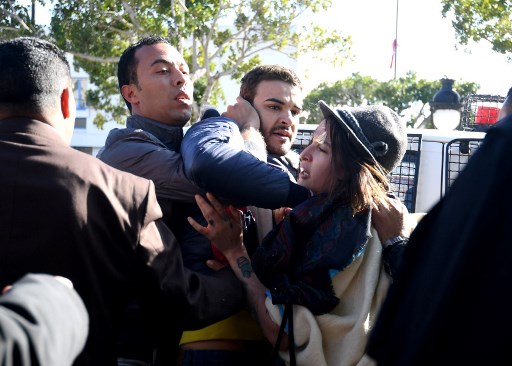

“The head of the region (head of security), and 3 other police officers were beating me at the same time. They wanted my phone, some evidence against me. I endured the beating until blood was dripping from my mouth, my face, and my hair was falling on the ground, but I didn’t give them my phone. When the investigation began, they beat me on the head and between my legs, and they all screamed at the same time: “Admit you are a pervert! Admit you sell sex for money!” Then, they ordered me to sign a confession that one of them had drafted, and when I refused, he pulled my hair so hard that I felt my veins would explode.” Nasser puts his hand on his head and continues, “It still hurts. He dragged me around the room yelling, ‘you disgusting pervert! you will not scare us with human rights! you have no rights! you are despicable! you should be in hell!”
Humiliating Anal Examination
When gay people are arrested and brought to trial, they undergo an anal examination. A doctor or nurse inserts his finger or a tool and checks the anus of the accused. The results are then used as irrefutable proof of the latter’s sexual identity. Human rights groups say that, although anal examination was common in the 19th century, it has lost its credibility long ago. The method is totally incapable of determining whether or not the person is gay.
These inhumane exams are a form of abuse that may be classified as torture, because they violate the Optional Protocol to the Convention against Torture and other Cruel, Inhuman or Degrading Treatment or Punishment, a treaty that supplements to the United Nations Convention Against Torture signed by Tunisia in 1988. By conducting anal exams, tunisia is also violating the International Covenant on Civil and Political Rights and the African Charter on Human and Peoples’ Rights.
Nasser was miraculously spared this humiliating exam thanks to his work as an activist, he tells us, despite the fact that the police tried in every way possible to force it on him in prison.
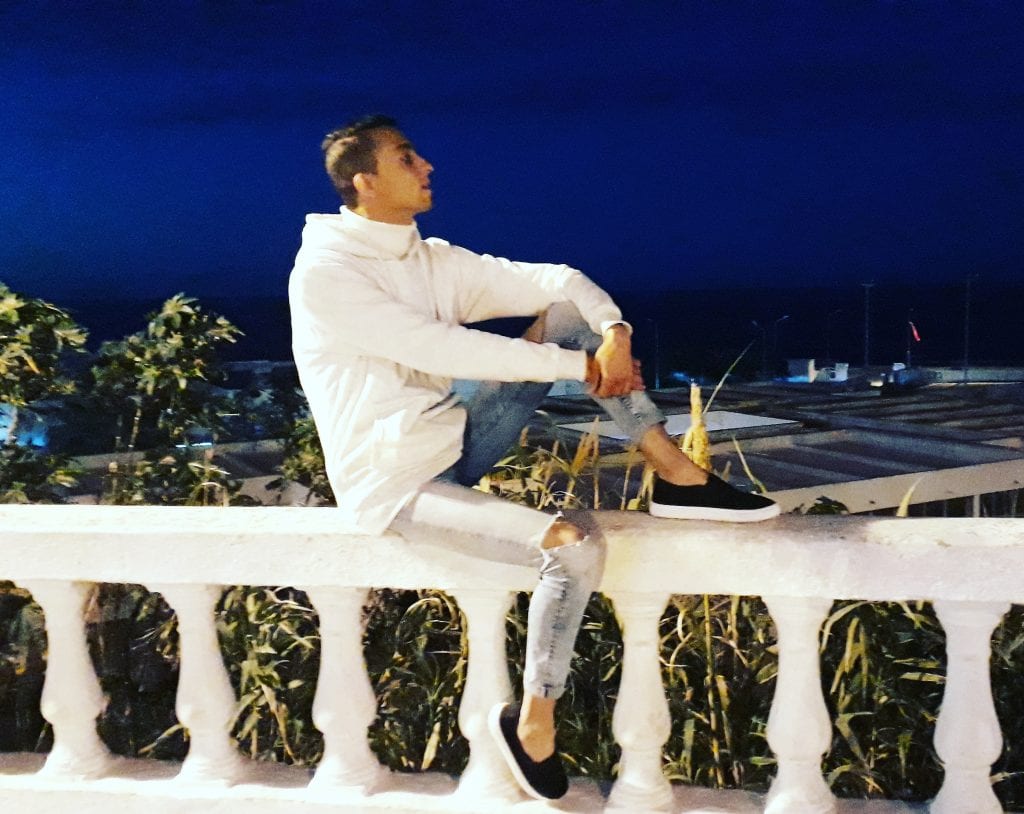

But meet 24-year-old friend Daniel, an Arabic Literature student (now suspended) who could not avoid the anal exam: “At the Ghaliba Hospital in Kairouan, two security officers restrained me, one of them clasped and yanked my hands, the other pulled down my pants, while the doctor inserted his finger inside me. I tried to stop him from messing around with my body, ‘how dare you call yourself a doctor and do this to me? Aren’t you supposed to be the angel of mercy? How could you allow yourself to put your finger inside me?’ But my protests fell on deaf ears. They were all busy lusting after the evidence of my crime, my homosexuality”.
Despite the physical and psychological pain from the continuous beating at the police station and in prison, Daniel tried to come to terms with the experience: “I said to myself, These things happen, people could get beaten by burglars on the street. What’s harder to overcome, though, is the inhumane treatment that left me shaken and humiliated.”
In an interview with Daraj, Monzer al-Sharni, general secretary of the Tunisian Organization for Combatting Torture asserts that anal exams are a violation of physical integrity, protected in article 23 of the Tunisian constitution. They can only be conducted in extreme cases like child abuse, and even then, they cannot be done without the person’s approval.
Daniel says he and his friends were bullied by the police into signing a consent document that allows the doctor to perform the anal exam. They refused to sign, but that did not change anything. The doctors were ordered to go ahead and examine them.
In 2016, the United Nations Committee Against Torture voiced its concern about Tunisia’s criminalization of consensual same-sex relationships, and its practice of anal exams which are sanctioned by court. When people exercise their rights and protest the exam, the police threatens them to use their refusal as proof of guilt.
Similar examinations, the international committee points out, are conducted on women in cases of “adultery” and “prostitution”, and they are often conducted against the woman’s will.
The committee recommends these unjustifiable anal exams be abolished, along with the amendment of article 230 of the penal code, which incriminates consensual relationships between two adults of the same sex.
Wanted for Justice
This is the first time Daniel talks to the press, even though his case was widely known and publicly discussed back in 2015: “I hate playing the victim. I have rights in my country, and I will do my best to claim them.”
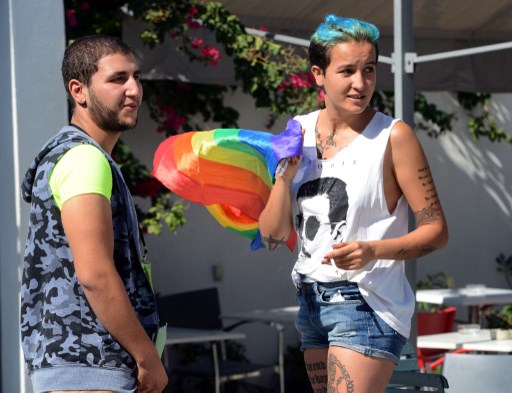

This young man has a deep passion for Arabic literature: “I couldn’t wait to finish high school and begin Arabic in college. I love it very much, it was my dream. I was very optimistic about the future. Since day one, I was active in the students’ union, and became popular on campus. The college is in Kairouan, I wanted to be away from my family in Carthage. I wanted a new experience in a new environment, away from the prying eyes of those who know about my sexual orientation.”
But Daniel’s life came to a halt in December, 2015, when he was suspended from college. He requested transfer to two different universities, but his requests were refused twice, “but I have not surrendered. I will keep fighting for my right to pursue my studies. I won’t let them ruin my future, or whatever is left of it for me.”
Three years ago, Daniel filed a lawsuit against the security officers who tortured him, but the case has since been shelved in court. None of the officers has been summoned yet. Daniel also filed an appeal against his one-month jail sentence, in the case which is now known as “the Kairouan Sodomy Case.”
Eleven Hours of Beating
“They beat us for eleven consecutive hours, from 4 pm until 3 am, slapping our faces and yelling, “Admit you are gay!”
Nasser recounts how a police assistant ordered him to wipe the floor with his pants, after a drunk man dropped his bottle of wine on the floor and it broke. “I was shocked! But I had to do it so I wouldn’t get hit again. There was smashed glass everywhere, splinters were cutting into my feet.”
Torture is punishable under Tunisian laws and other international treaties of which Tunis is a signatory. Article 23 of the Tunisian constitution guarantees the state’s protection of human dignity and physical integrity, and prohibits mental and physical torture. Crimes involving torture have no statute of limitations.
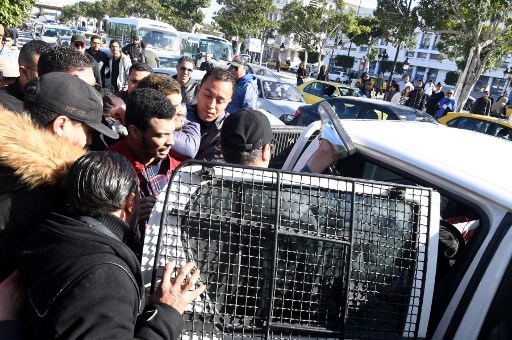

Despite the preventive measures taken by the National Board for the Prevention of Torture and the awareness campaigns it launched since its establishment after the revolution, and its numerous visits to the prisons and detention centers, these inhumane practices are still widespread in Tunisian detention centers and prisons.
“At the prison door, the first thing we heard was ‘The perverts are here, find them a dirty corner that suits them.” Nasser stops talking and tears course down his cheeks. What hurts him most is that he and his friends were called disbelievers, not Muslims. They called them “women,” too: “I do not consider myself a woman, I’m a man but I have a different sexual orientation. I wanted to explain that to them, but I kept quiet out of fear”.
Nasser says he and his friend were illegally interrogated inside the prison. Several times, the officers tried to torment them into getting an anal exam, but when Nasser, the civil rights activist, threatened to make the story public, they stopped. However, torture and humiliation did not abate: “I wished I was dead more than once, to be relieved of that hell I was going through in prison,” he says.
Article 101 of the penal code punishes the civil servant who, while in position, tortures another individual, with 5 years in prison. It goes on to define torture as “any action which causes pain or severe agony, whether physical or psychological, to a person for the purpose of getting any information or confession from him or from another, or punishing him for an act done, or is suspected to have been done, by himself or by anyone else, for any reason, or terrorising him, or another person, or inflicting such torture for discriminatory reasons.”
Nasser says that the physical and psychological torture and verbal assaults were not limited to the detention center, but continued inside the prison.
As for Daniel, he was first arrested with his friends on terrorism charges. It all started when the mother of one of the boys who was with them called the police and reported him missing. Daniel and the group were then accused of recruiting underage boys for extremist organizations. Daniel says the treatment they got from police officers totally changed after they discovered they were gay.
“At the beginning, the interrogator was treating us somehow with respect. But when he opened my friend’s laptop and found gay porn videos, they flipped out and we really wished we were real terrorists. They began to beat us. We didn’t resist, argue, or ask them to stop. They were unbelievably brutal, barbaric. They punched us on the nose, the eyes, the ears. They weren’t taken aback by the sight of blood. We saw death in front of our eyes. We will never be able to forget that.”
Behind Prison Bars
Neither will they be able to forget what followed later in prison: “They would pull us out of our cells in the middle of the night, seat us on chairs in the dark hallway, and flog the soles of our bare feet with rods.” Daniel points to his ankles to show us the torture marks: “We were the laughingstock of the other prisoners as well. Whenever the guard got bored or could not sleep, he would come for us, torture and humiliate us. Our crying made them laugh.”


Amir was with Daniel in prison on account of the same charges. He has a phobia of beetles. And it happened that in the dark corner assigned to him in jail, there were a lot of beetles. His panic made the others laugh at him all the more. Daniel tells us about the time when Amir asked permission to move to a cleaner sleeping corner, something he later wished he had never done: “When the guard heard the request, he laughed and called us both out of the cell at 3 am. He had a bucketful of insects. He said to Amir, ‘small creatures like these frighten you, you dirty pervert?’ Then he poured the insects on his head and they wriggled under his clothes. I saw horror in Amir’s eyes. It was devastating, extremely humiliating to me to see my friend cry without being able to do anything for him, not even try to calm him down. He totally freaked out. He was violently shaking all over, then he collapsed and fainted.”
Suhaila Ben-Said is the head of the Tunisian Association for Positive Prevention, one of the most prominent associations in Tunis. Their awareness campaign promotes the use of condoms and other means of prevention. The association also provides legal support for LGBTQ+ individuals who fall into the hands of the police. Ms. Ben-Said told Daraj that authorities in the capital city Tunis are perhaps more “open” than their counterparts in remote governorates where STD prevention activists face many hurdles. She points to the dire need for legal assistance in those areas, as very few local lawyers would take on cases related to personal freedoms, which makes it hard for the association to intervene when LGBTQ+ people are harassed, arrested, tortured or imprisoned.
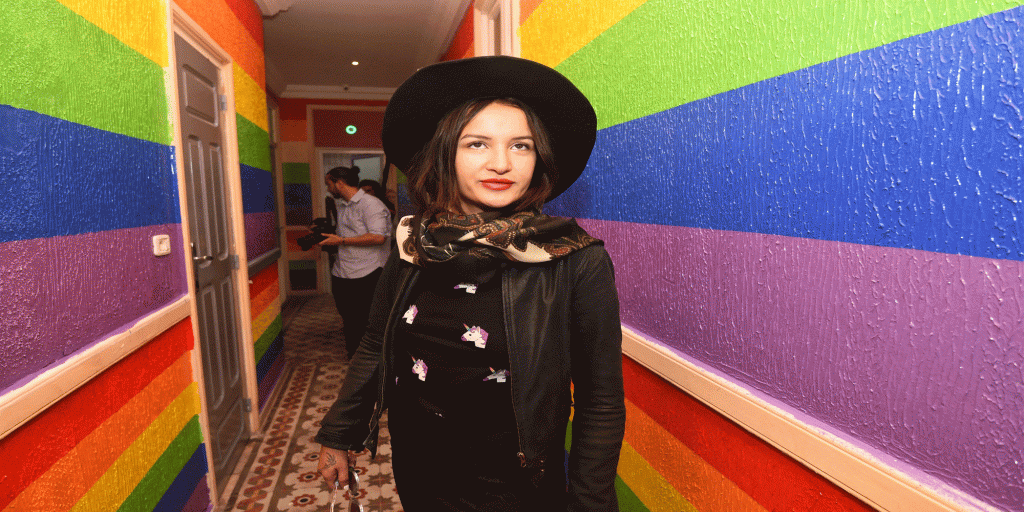

A Constitutional Authority for the Prevention of Torture
The National Board for the Prevention of Torture remains one of the highest achievements of the Tunisian revolution. The board came into existence at a time when an enormous amount of violations against political dissidents and civil rights activists were revealed to have taken place took place during the rule of former president Zain al-Abedin bin-Ali. The revolution heralded the end of the age of tyranny, but torture is still prevalent in police stations and prisons, mainly against minorities. As an independent public entity, the board’s role consists in providing consultancy, monitoring detention and refugee centers, and making sure detainees are protected from torture, and their treatment and the sentences they receive are compliant with human rights standards.
On 7 November, 2018, the Board for the Prevention of Torture denounced the various attempts to hamper legal procedures against those who are involved in torture crimes and provide the latter with legal immunity, even when they are found guilty. In a statement, the board called those who are intervening for the sake of the criminals, to respect the constitution, the international agreements and relevant laws, which guarantee torture victims and their families, and the society as a whole, the right to seek the truth about the extent of violations they were subjected to, and the violations against their physical integrity. The board also called on all parties to stop campaigning for the sake of hindering the work of the judiciary, and to stand up to all the various attempts to escape punishment, whatever the justifications may be.






